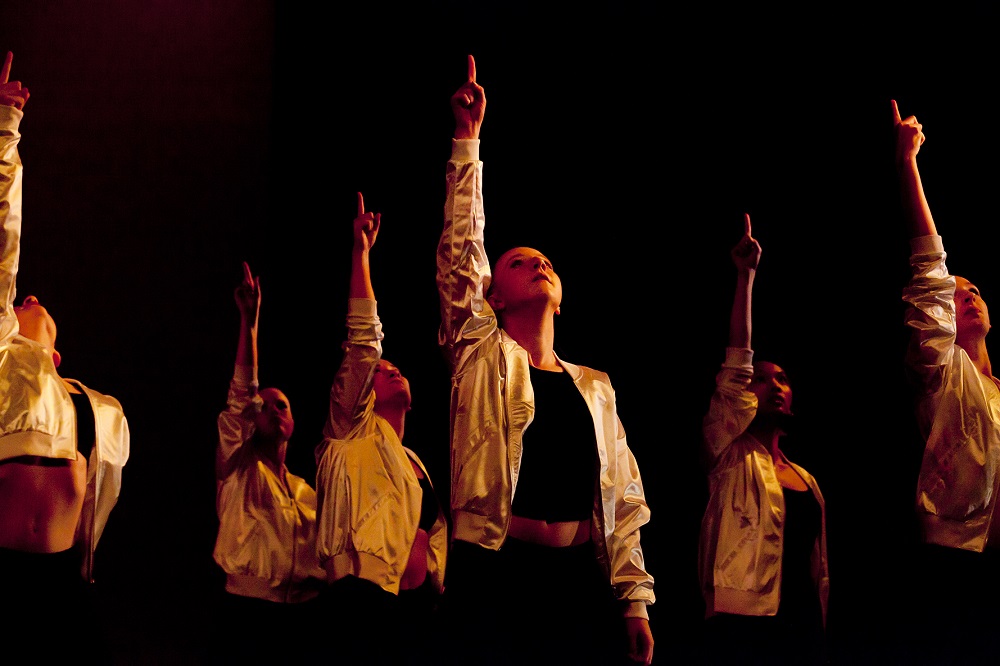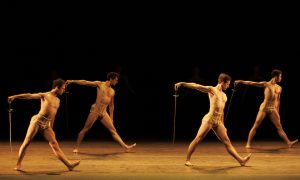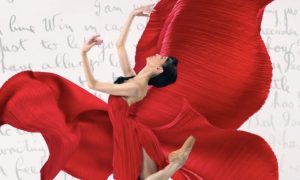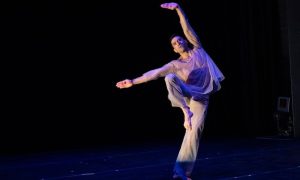One standard by which we can measure the merit of a pursuit is if the end goal is met.
Arguably, the most straightforward goal of training as a dancer is to eventually become a professional dancer, and we could say that if we have achieved this career, then the goal has been met and all of the blood, sweat and tears so to speak were worth it. But is that the only outcome we want from our dancing, and is that the singular end? As artists and technicians who have been taught to constantly push for greater skills and improve upon ourselves and what we can accomplish, it doesn’t feel right to say getting that job is all we need. And we can get into an entirely different conversation if you want to about what a dancer is; I’d posit that the ability to get that job is not actually what defines us as dancers.
Elisabeth Morray, PhD, is a psychologist who has been working with dancers for years, first as an instructor and administrator at Boston Ballet, and now in her role as Chief of the Department of Behavioral Health at Harvard Vanguard Medical Associates, Chestnut Hill. Her other current roles include Chief of Behavioral Health Subspecialties, including eating disorders. Every single part of yourself is invested when you train and work as a dancer, but Morray emphasizes that the type of training environment heavily influences where the worth lies.

Elisabeth Morray.
“There are few training environments that actually do a good job with this idea of embracing the whole dancer,” Morray says. “For a lot of dancers, the studio is an environment in which the only outcome considered is a professional career, and it may be very challenging to work with this narrow definition of a career. But a studio environment in which multiple outcomes are considered healthy and worth pursuing allows for different aspects of identity and strength to be nurtured and have a more balanced emphasis. If you’re talking about pre-professional commitment, and dance is probably the most time and energy committed to one thing other than school, then you really need to look at how that commitment is being directed. Yes, having a professional career would be considered a successful outcome, but other attributes, skills and strengths developed in the studio can be equally valid and worthy of approval.”
This, thus, begs the question of what worth does dance give you? Does it (merely) give us physical fitness, motor coordination and musicality? Maybe it’s (only) character, bravery and mental fortitude? Dance develops an incredible array of physical, emotional, social and, of course, some very specific occupational skills. Dance certainly gives you more than career training.
I remember way way back when my friend Laura Conley and I were dancing together in college, she had already had her professional career and was then in medical school while I had yet to have mine, and she explained how clear it was that her medical school interviewers were keenly interested in her background as a dancer. They knew it gave her an inherent understanding of the human body, incredible discipline and the possibility of desiring a creative and elegant approach to her work. There were advantages that non-dancers in other high-achieving fields recognized. The training and pursuit of dance gives us worth that we might not consciously realize, but ask any dance parent, former dancer or boss who has had dancers as employees, and they will excitedly concur that the dedicated pursuit of dance garners valuable life skills and perspectives.
“Particularly when you’re talking about training at a pre-professional level, we’re talking about a pursuit that guides every part of your life, the physical, emotional, social and creative development,” explains Morray. “While there isn’t necessarily as much opportunity for development of intellectual capacity, dancers do develop what psychologists call executive skill, which is really applicable to any other pursuit you choose to do. Dance is an all-encompassing activity with room for growth and for challenges.”
So, dance gives us worth, but is it really worth doing? For all the positive qualities we can develop through our hard work, there are some serious potential tolls in any of those aforementioned areas of wellness from which we can suffer. Dance has a cost that far exceeds money and time. Dance is hard! It is draining! It takes incredible strength in every possible facet of your being. It doesn’t matter if you are in a full-time company or freelance or make good money or have four other jobs; being a dancer will test every single one of your limits time and time again.
What we are doing to our body, that physical effort, that wear and tear that can be irreversible, is only half of it. We also deliver incredible emotional effort and find that our entire identity can be based on our existence in this pursuit. By dancing, you give yourself this definition.
“Research indicates that, in general, having multiple identifications and multiple sources of identity input and investment are really almost always going to be healthier,” Morray explains. “Whether you’re talking about someone who is absolutely devoted to a career, or devoted to a relationship, or any external pursuit, having that level of attachment to any one thing tends to be a risky position because any threat to that singular facet of identity feels like it could shift your life in a direction that makes it feel like it’s no longer your life. Dance makes it particularly difficult because it does tend to be all consuming. Having too many expectations for your identity can be challenging, but, in an ideal scenario, you learn to compliment what might be your primary source of identity with other things that might not be as important relatively but still hold meaning for you for yourself or in your life.”
Regardless of what you do within or beyond your dance training and dance career, the effort, process and approach stay with you and are part of who you are. Your sprained ligaments and crunchy cartilage will be there with you, too! But whatever your perspective, you had the great fortune to call yourself a dancer, and that, to me, will always be worth it.
Is dance worth it?
Brian Schaefer, MA, a journalist who has written for publications including The New York Times, The Daily Beast and Dance Magazine
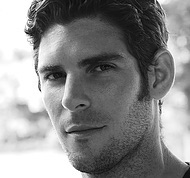
Brian Schaefer.
“I didn’t consider dance an investment when I started. I just gravitated toward it at university and then decided to add a degree in dance and stay a fifth year, which was indeed a big time and financial investment. But I realized quickly that I wasn’t interested in a performance career and so began working as an arts presenter, which taught me that a background in dance can be applied in many different ways beyond being on stage. Ultimately, I stumbled into journalism, where my knowledge of dance proved unexpectedly to be a key that unlocked opportunities to write for publications which, given how new I was to the field, I really had no business writing for. None of it was planned, but all of it was somehow driven by a passion for dance. I never assumed that to love dance meant I had to be a dancer. I just let my fondness for and fascination with the art form take me in multiple directions – all of which have been fulfilling – and lead me to acquire and develop different skills (like writing) that I in turn have applied to dance. I didn’t expect a career out of it, but somehow I got one.”
Laura Conley, MD, a primary care physician, who is board certified in family medicine, and her clinical interests include dermatology, pediatrics and women’s health
“Yes and no. As a teenager, it gave me something powerful to open my eyes to every morning. It distracted my adolescent brain from many negative influences, but in some ways it was itself a negative influence. The dip into eating disorders is real. But how much of an eating disorder is from ballet, how much intrinsically in the dancers themselves? Many years later, after that ballet career is over, my body is wrecked — I have low back pain every day, early arthritis in my knees and the long-term nagging sensation of something unfinished in my life. Ballet did push me to want more, to work harder, to achieve more, to put 1,000 percent in everything I do. It is a huge part of why I got into medical school — they want diversity, right? Who else applying to medical school used to be a professional ballet dancer? Overall, I’d say ballet is a mixed bag. It became a bit of an obsession, but it gave me purpose. It paved a path for my current career, but it left lasting scars. The positivity lies in turning around the negative aspects of it and healing from that.”
Marissa Schaeffer, PT, DPT, CSCS, owner of Marissa T Schaeffer Physical Therapy and also physical therapist for Alvin Ailey American Dance Theater and PhysioArts

Marissa Schaeffer.
“Was dance worth the cost in every sense of the word? Yes, absolutely yes. I started dancing before I could string together coherent sentences. From a young age, dance gave me a voice, an emotional outlet and incredible joy. Don’t get me wrong, dancing also came with its fair share of difficult moments: being cut from auditions, struggling with the idea that my body might not be able to move the way I wanted it to, hearing constantly about what I had to fix instead of what was progressing and et cetera. But every single moment, from the glowing memories to the frustrations, has made me into the person I am today, and I am beyond grateful. I stopped dancing over five years ago secondary to a back injury that caused recurrent, mounting pain. At that point, it was easy to focus on all that had gone wrong in my dance career, but as I began recovering from my injury and transitioned into a career as a personal trainer and later a physical therapist, I realized what the pursuit of a career in dance had given me. I realized I have an intimate connection to the body and a critical eye for movement that enables me to help patients excel. I have an understanding of dance technique and what goes into becoming a dancer, which helps to foster a trusting relationship between myself and my dancing patients/clients. I am versed in reading the language of the body so I can interpret both what is said and what is not. And in the face of obstacles that come between me and my career, I am able to regroup and redirect my focus to continue to pursue what I love.”
By Leigh Schanfein of Dance Informa.


